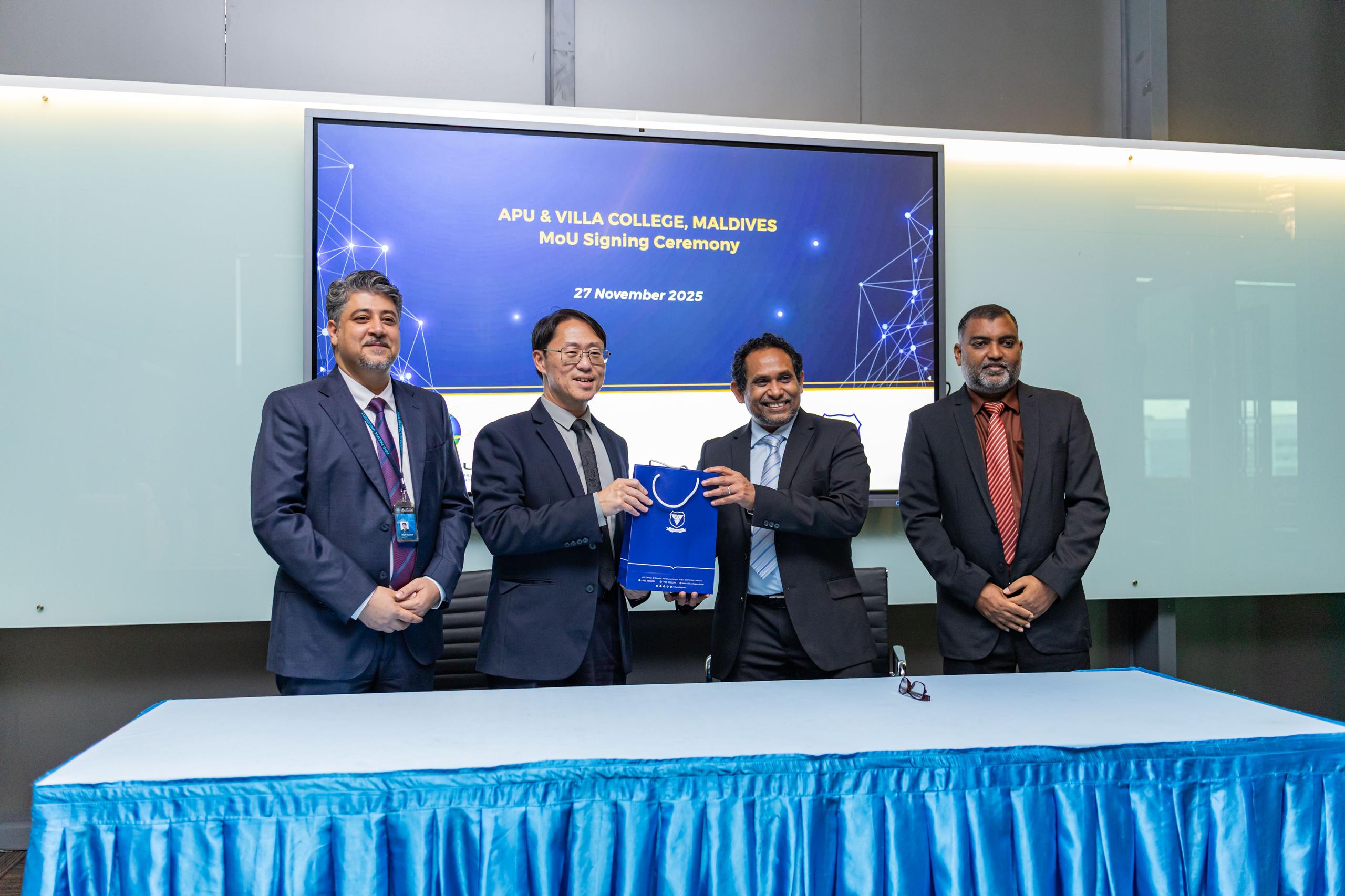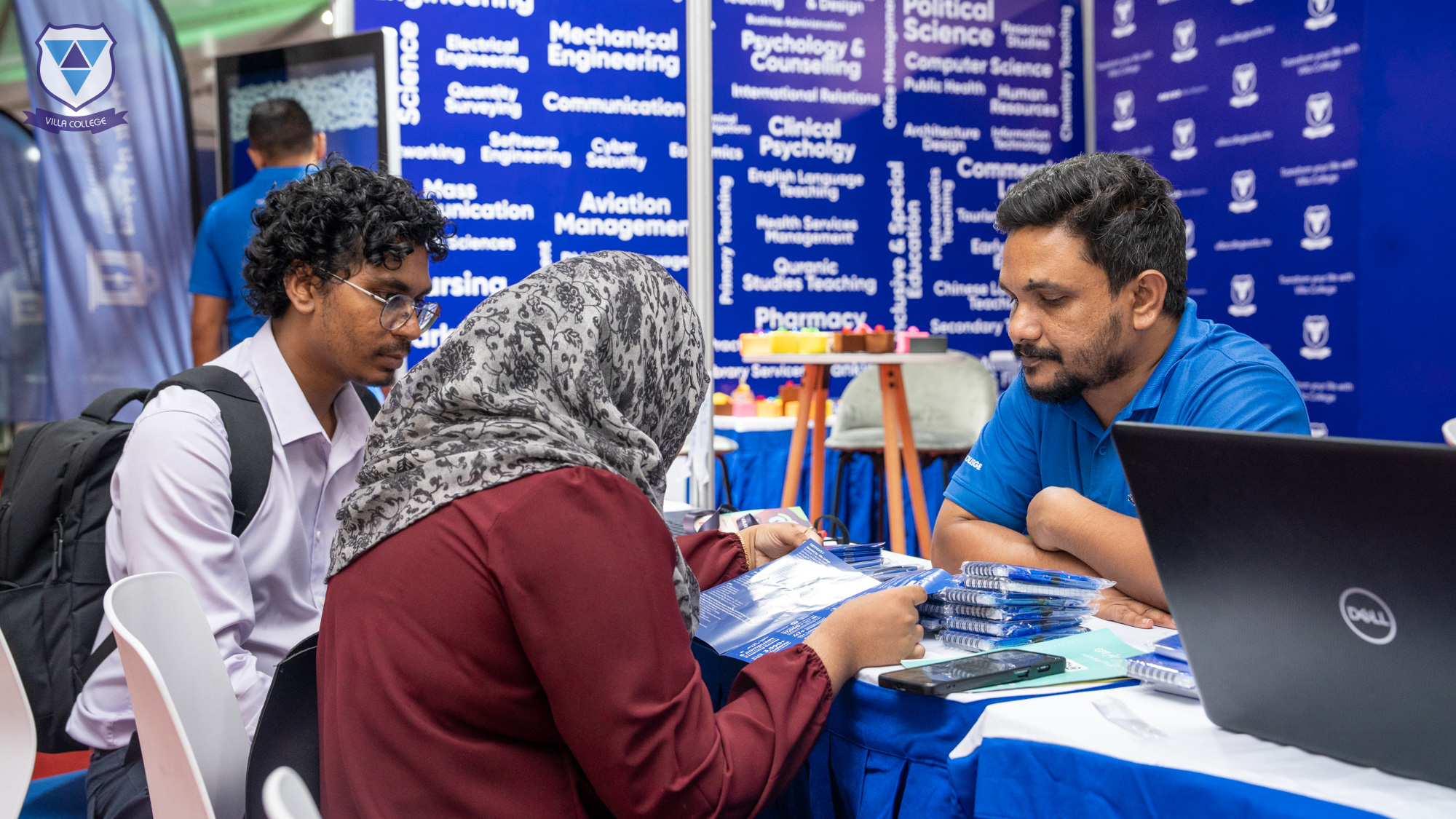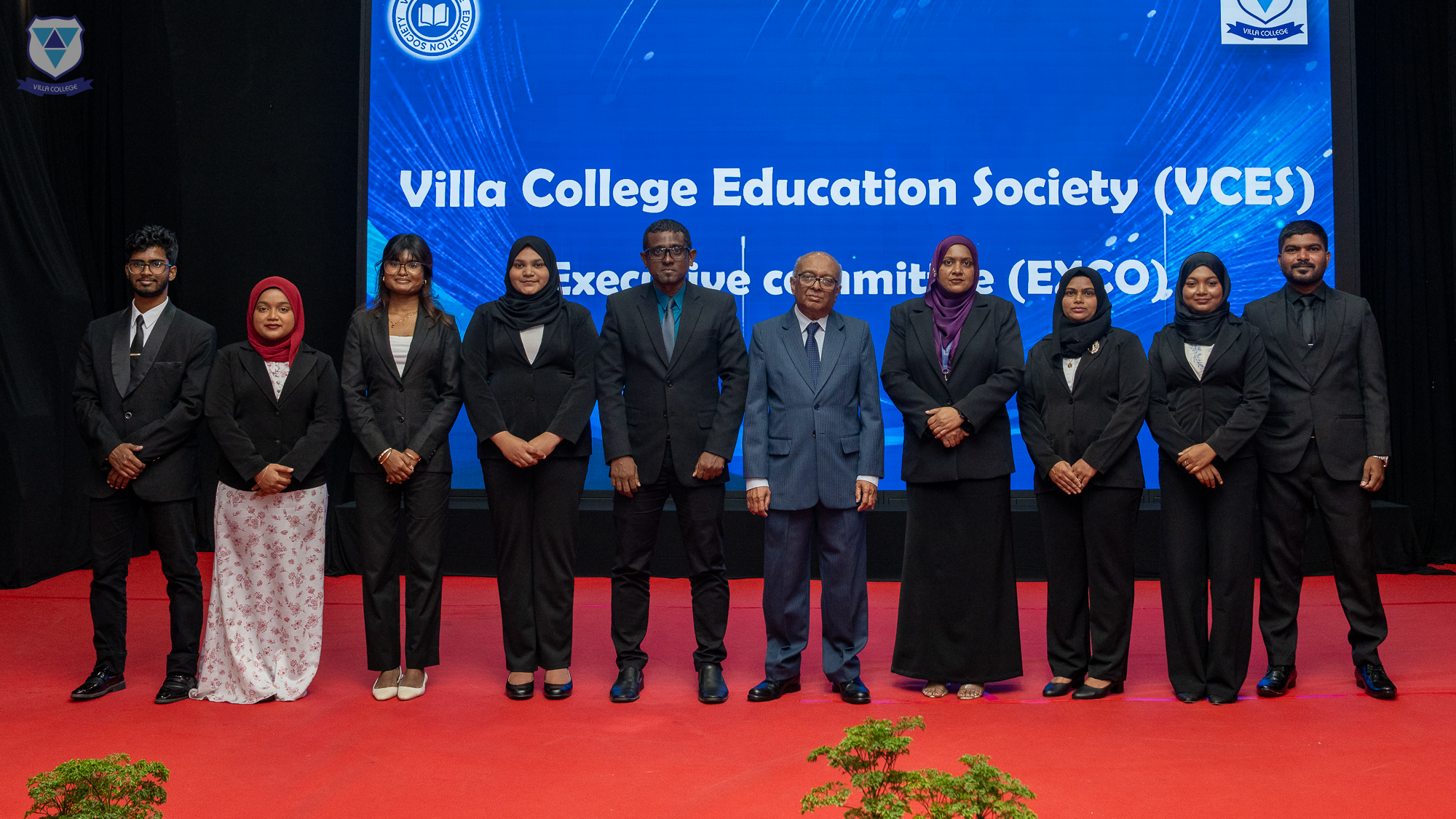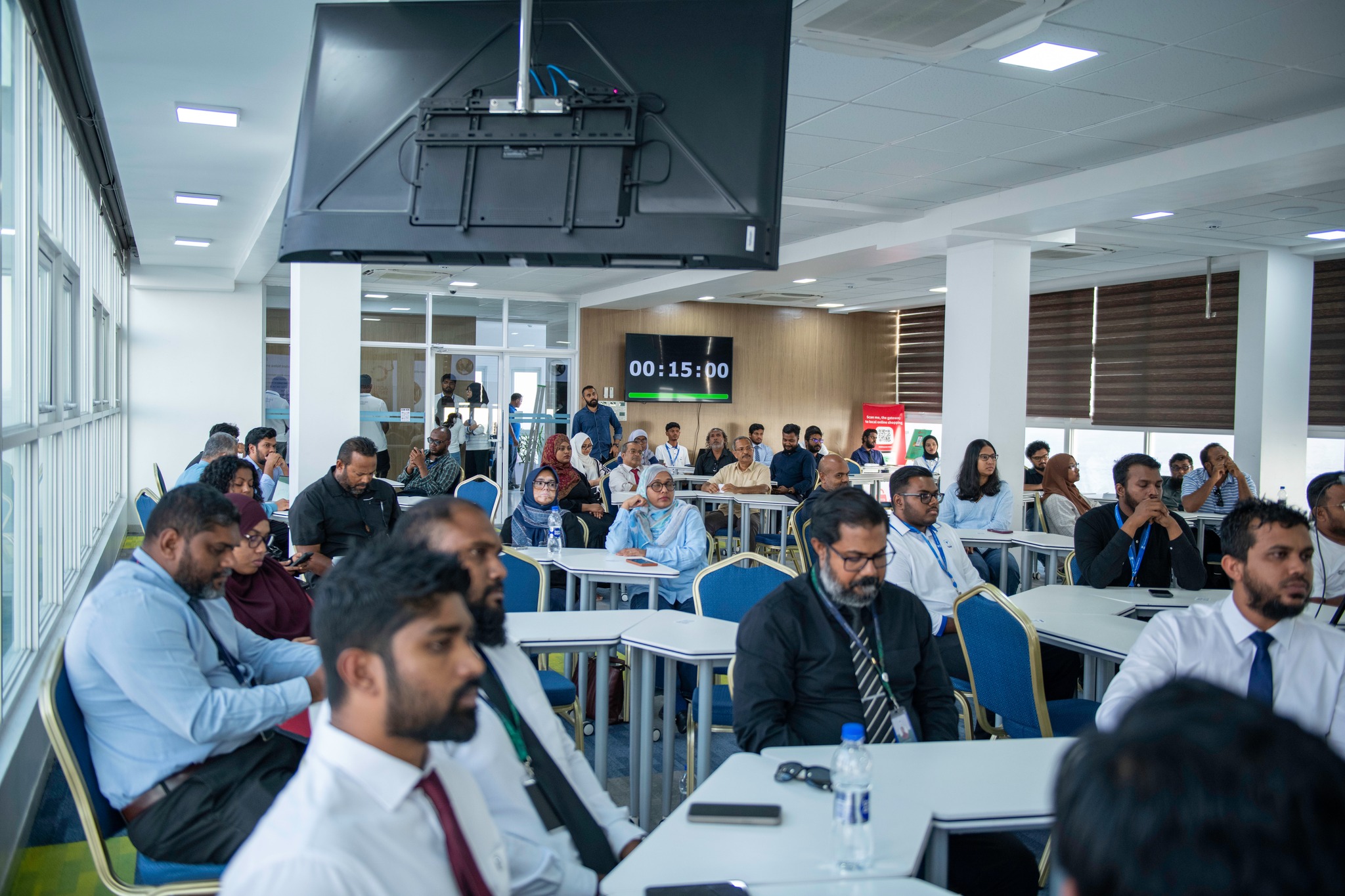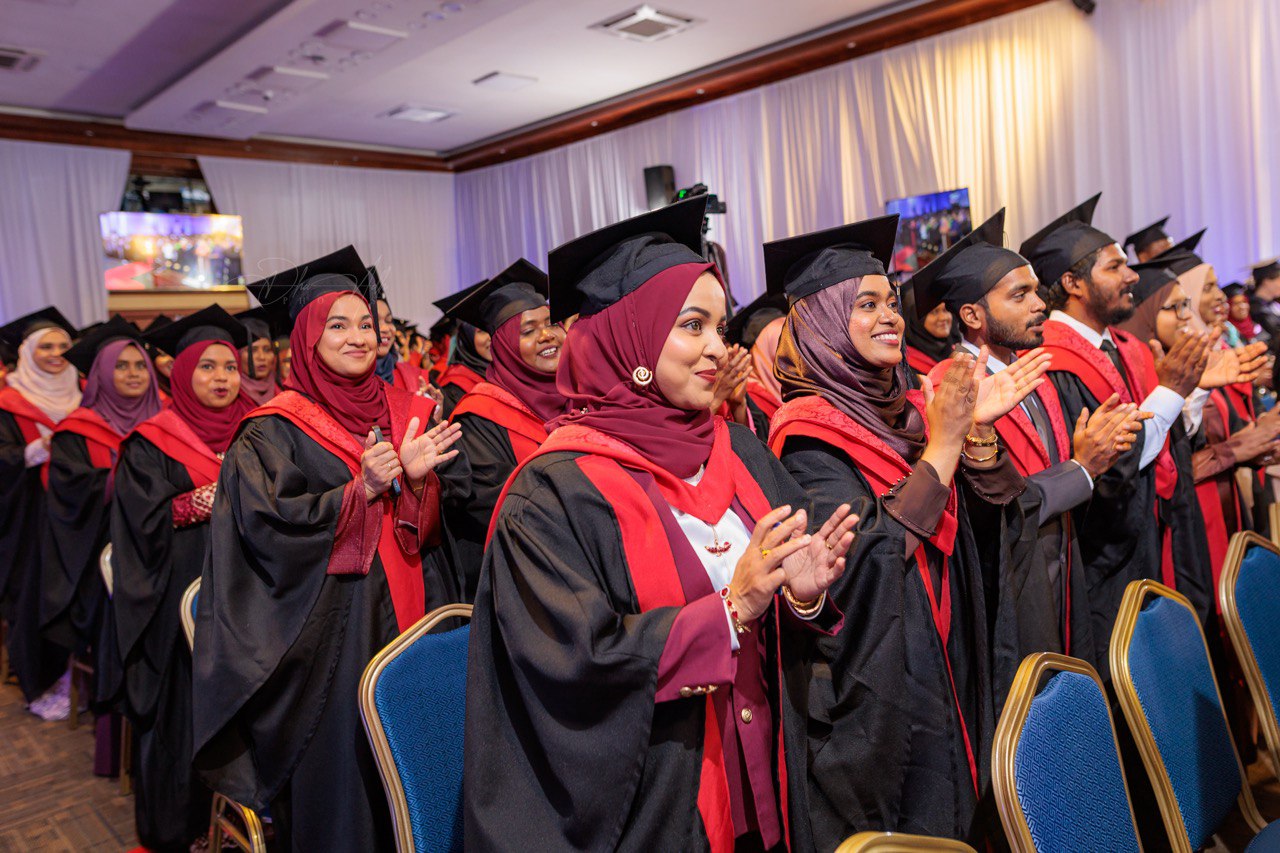Villa College has marked a significant milestone, celebrating the graduation of 1,488 students from a diverse range of programs. The graduation ceremonies, held over six distinct sessions at the Villa College QI Campus, stand as a testament to the institution's enduring commitment to shaping the future of the Maldives by nurturing skilled and knowledgeable professionals.
This year's graduating class reflects the breadth and depth of the College's offerings. A total of 843 graduates, representing 58 percent of the cohort, completed programs developed by Villa College itself. Meanwhile, 645 graduates, or 41 percent, successfully finished programs offered in partnership with the prestigious University of the West of England (UWE Bristol) from the United Kingdom. Notably, the 2025 graduating class demonstrates a strong female representation, with women making up 70 percent of the graduates. These newly qualified individuals are now poised to contribute to vital sectors essential for national development, including education, health sciences, law and shari'ah, business, information technology, engineering, and accounting and finance.
The 2025 graduation was particularly special as it featured the inaugural cohorts from several new and innovative programs. For the first time, students graduated from the Bachelor of Teaching in Chemistry and Biology, Bachelor of Aviation Management, Bachelor of Electrical and Electronic Engineering, Bachelor of Mechanical Engineering, and Bachelor of Mechatronics Engineering. The ceremony also celebrated the first-ever graduates from the Master of Counselling and the Bachelor of Arts in Interior Architecture and Design. The introduction and successful completion of these programs underscore Villa College's proactive approach to building professional capacity in new fields crucial for the Maldivian job market.
The series of ceremonies were graced by the presence of senior government officials and esteemed partners. The chief guest for the first session was the Minister of Cities, Local Government and Public Works, Adam Shareef Umar. The second session was honored by the Minister of State for Higher Education, Labour and Skills Development, Ahmed Shafeeu, while the Minister of Health, Abdulla Nazim Ibrahim, attended the third session as the chief guest. Furthermore, the session for UWE Bristol graduates was made memorable by the participation of the university's Vice-Chancellor, Professor Sir Steve West.
In his address, Professor Sir Steve West highlighted that the graduates are now part of an extensive global network of over 300,000 UWE Bristol alumni from 174 countries. He commended the robust and enduring partnership with Villa College, emphasizing that this collaboration provides Maldivian students with the invaluable opportunity to attain a world-class education without having to leave their home country.
Addressing the graduates, the Rector of Villa College, Dr. Ahmed Anwar, spoke about the profound responsibility that accompanies education. He reminded the new alumni that as their knowledge grows, so does their duty to contribute positively to the society they live in. He encouraged them to seize the opportunity to serve the community for the greater good.
Dr. Ali Najeeb, the Vice Rector of Villa College, shared impressive statistics from this year's graduation. He proudly noted a 10 percent increase in the number of graduates compared to the previous year. He also revealed that college research indicates a high level of student trust and satisfaction. For instance, 21 percent of students who complete their first degree at Villa College rejoin for a Master’s program within the first 12 months. Moreover, over 30 percent of students who complete foundation programs continue their academic journey by enrolling in degree programs at the College.
From 2009 to 2025, Villa College has successfully graduated a total of 24,173 students. This remarkable achievement reinforces the College's pivotal role as a leading provider of higher education in the Maldives, consistently contributing skilled and capable individuals to the nation's workforce.
